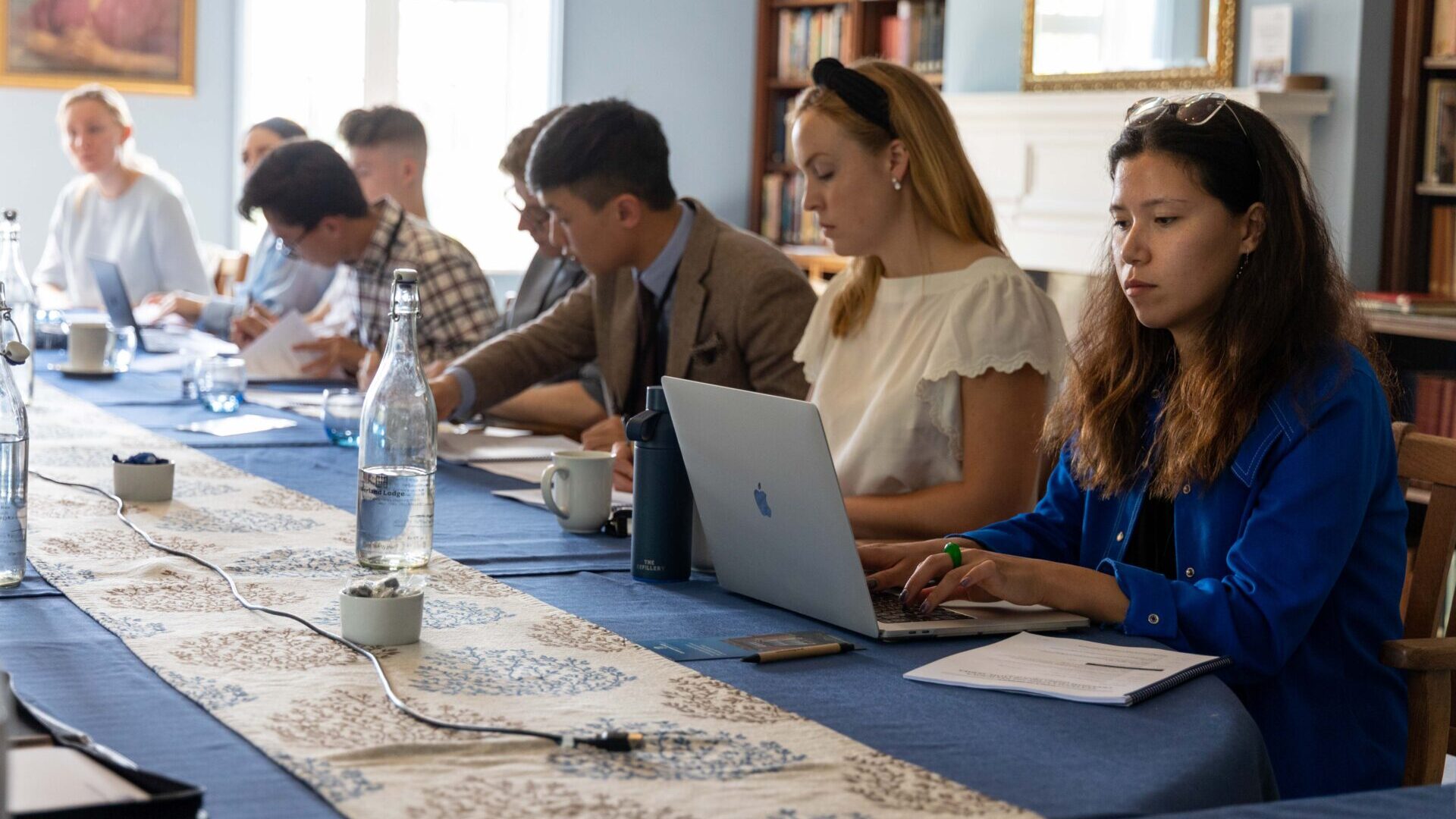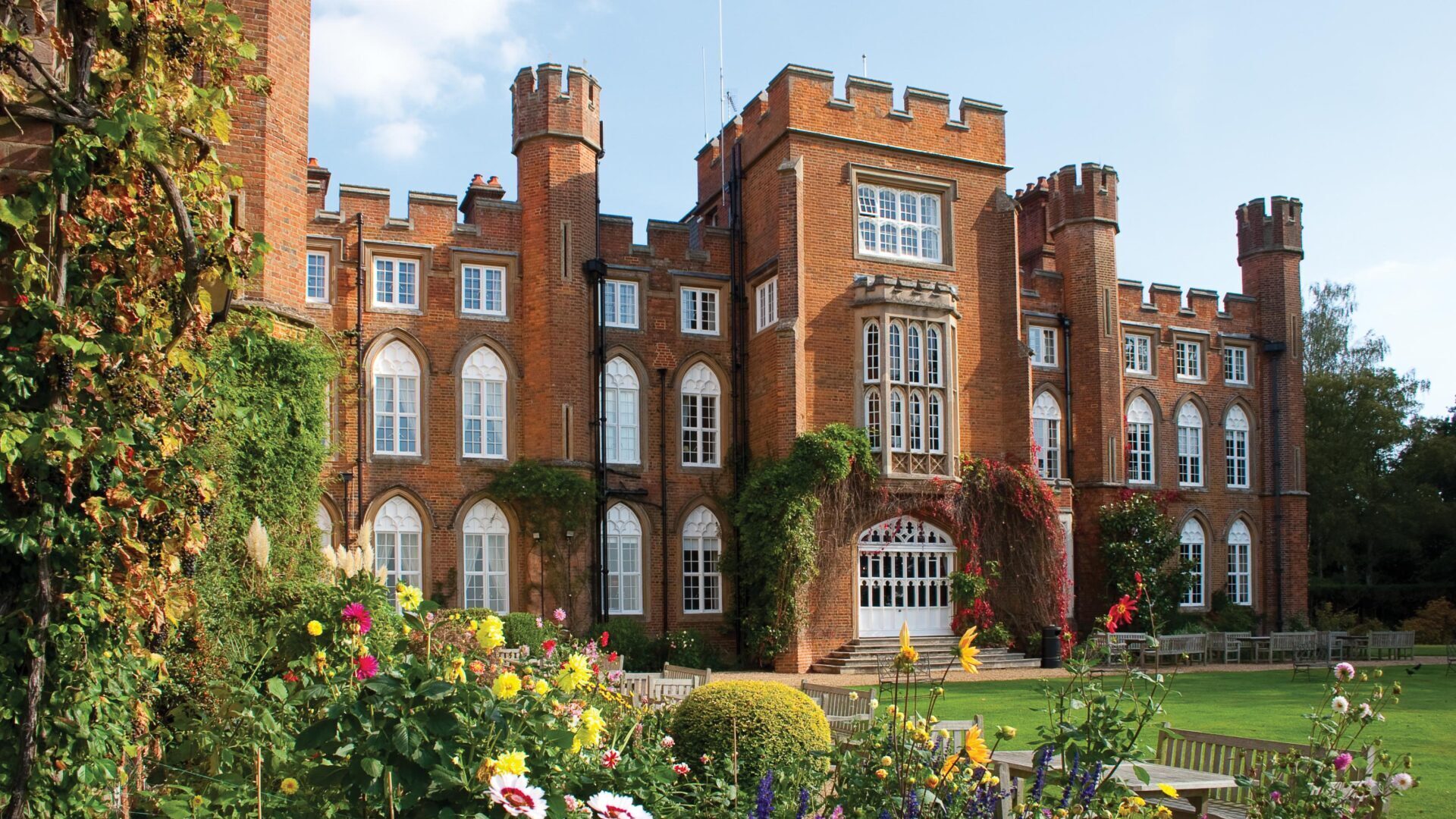Effective writing is a key skill of academia. The importance of writing to record, structure, share and challenge ideas is as vital to the academic process as it has been for centuries. Writing essays, theses, grant applications, papers and books are milestones of academic life whether as a student or as faculty.
Academic writing has a distinctive style and is a skill in itself. Like all skills, it requires time, effort and practice to develop and does not come easily to everyone. Like so much of modern life, there is also a growing problem with academics reporting that other pressures in their work and personal lives are leaving them with too little time for professional writing – in one survey nearly half of academics reported that they did not have enough time for writing and publication.
Retreats specifically catering to academic writing can answer both issues. They provide a dedicated space and structured time to dedicate to writing, with no other purpose or distractions. An academic writing retreat is a chance for participants to progress their own writing projects in an environment that is supportive and unpressured.
The location is vital to the success of an academic writing retreat, as an organiser or a participant. It should be one free of noise and other distractions, one that’s physically and intellectually comfortable and that has all the support and facilities needed so that those attending can concentrate on their work rather than the problems of daily life.

Cumberland Lodge as a UK academic writing retreat venue
Cumberland Lodge must surely be among the finest venues for academic writing retreats in the UK. We take our name from the 17th century country house (and former royal residence) that has been our home since 1947 – an elegant, comfortable and spacious place full of charm and history. We are situated deep in the glorious green space and woodlands of Windsor Great Park, so can offer quiet, beautiful and inspiring surroundings.
Yet we are also easily reached by almost any means – road, rail or air – from any part of the UK and Europe. We have a variety of meeting and working spaces, suitable for large group discussions or smaller working groups and private rooms for working alone, as well as overnight accommodation and on-site catering: Everything you need for a successful and enjoyable writing retreat.
What happens on an academic writing retreat?
Unlike some other forms of retreat, group discussion and development are not the primary aim of most academic writing retreats. While these are part of the process, their main purpose is to give attendees time and space to dedicate to their own work in an ideal environment.
The group structure of an academic writing retreat is to guide and drive that individual’s work. A typical retreat starts with some warm-up writing prompts – usually simple, neutral questions such as briefly outlining each person’s professional background, writing and publication experience or what they hope to gain from the retreat. The answers to these are written in a short time frame and the answers themselves are not read by anyone else. Instead, some brief discussion about how each person structured, developed and wrote their answers (rather than the answers themselves) can help everyone to focus on the writing process itself.
The key benefit many academics get from a writing retreat is that it provides a driving structure and motivation compared to working alone. Retreats are usually broken into writing slots of between one and two hours each, followed by shorter breaks and discussion periods of 15-30 minutes. Writers set their overall goals at the start of the retreat, and then short-term aims for each writing session.
For instance, in the first session a writer may set themselves the goal of identifying three problems with an argument they’re analysing and summarising each into a few sentences. Then for the next session, they will write that up into a 700-word section draft, and for the next, they will aim to tighten that up to 500 words, then in the next session, they will write an introduction and conclusion. By the end of the retreat, they will aim to have worked the initial analysis of the three problems into a chapter-length discussion.
This is just one example of how goals can be set during a writing retreat – they will be as varied as the people and fields represented in the group. At each discussion period between writing sessions these goals can be discussed and changed, with insights into the writing process and how peoples’ projects are going being shared. The group can learn from each other to boost their own writing progress, as well as hone their planning and timekeeping skills.
Some people prefer to write alone and share their progress with peers in the group sessions between writing slots. Other retreats work by having all the participants working in the same space, while others create smaller groups or pairs of writers. Academics commonly report that group working on writing retreats help provide motivation and promote the sharing of ideas and feedback. Some retreats will offer a choice of writing environments.
While group insight and socialising are a key part of any writing retreat, the real value is that writing time is structured. A good facilitator will be fairly strict with the timetable, preventing discussion sessions from becoming chats that take up time scheduled for writing, and similarly keeping participants to the set writing blocks. This helps develop the discipline and planning skills and helps attendees get the most productivity and learning from an academic writing retreat.

Facilities
Hosting group events is what we do, so we have the experience, the facilities and the support to provide everything for anyone organising an academic writing retreat. Whatever numbers are attending, and whatever form you want your retreat to take, we can host it.
Our Mews Conference Centre contains five rooms of varying sizes. The largest, the Flitcroft Room, can accommodate 50 people sat around a circular table, 48 around a single large solid table or 36 around a U-shaped arrangement of tables. Other seating arrangements can take up to 120 people. The smaller rooms are suitable for between 30 and six people around a single table. These rooms make ideal main working spaces for group discussion and writing sessions. The Lodge building itself also has three rooms, including the Amy Buller Library and the historic Chapel, which can be set up for between 18 and 30 people around a single table or 18 or nine people in a U-shape.
The Groom’s House is a self-contained space at Cumberland Lodge with a private garden. As well as three meeting rooms (each capable of seating a dozen people around a circular table) there are seven en-suite bedrooms, a sitting room and a self-catering kitchen, making it perfect for smaller retreats.
The perfect place for an academic writing retreat
We are an educational charitable foundation, dedicated to bringing together students and academics to foster understanding, conversation and ethical ideas since 1947. We understand the academic world and our venue has a familiar collegiate atmosphere that promotes thought and high-quality work. Cumberland Lodge can become a home away from home, whether it’s for one day or several, to put you in the perfect frame of mind to focus on and develop your work.
Cumberland Lodge is secluded in the beautiful open spaces of Windsor Great Park but is easily accessible. Despite being less than an hour by train from central London and a short drive from the M25 motorway, the Lodge and its surroundings are quiet, serene and free from distractions.
Hosting group events is what we do, so we have the experience, the facilities and the support to provide everything for anyone organising an academic writing retreat. Whatever numbers are attending, and whatever form you want your retreat to take, we can host it.
In this frenetic and ‘always switched on’ digital world, at Cumberland Lodge we aim to connect people to other people through interaction and conversation. This works perfectly for a writing retreat, where standing rules often forbid the use of the internet or email during writing sessions – it’s just your reference material, your notes, your work and your peers. Cumberland Lodge truly can be a retreat in the very real sense of the word. A chance to get away from distractions, the professional world of deadlines, reports and reviews and to focus on yourself and your work.
This doesn’t mean that we eschew technology completely – all our meeting rooms are amply provided with power points for laptops. If you’re running a retreat where online research is allowed, all our rooms have fast and reliable internet access, and there is audio-visual equipment should it be required.
A retreat should be exactly that, and attendees shouldn’t have to leave the venue for meals or accommodation, which risks breaking the atmosphere of calm and focus. That isn’t a problem at Cumberland Lodge, with over 30 guest rooms in the Lodge itself and 16 more in the upper floor of the Mews. We also have three dining spaces, plus the possibility of dining outside on the lawn in the summer months. We can work with organisers to provide a bespoke menu for all parts of the day.
Create an academic writing retreat at Cumberland Lodge
You can hopefully now see why Cumberland Lodge is the ideal place to hold an academic writing retreat. Contact us today to start discussing your requirements and creating the perfect writing retreat.
